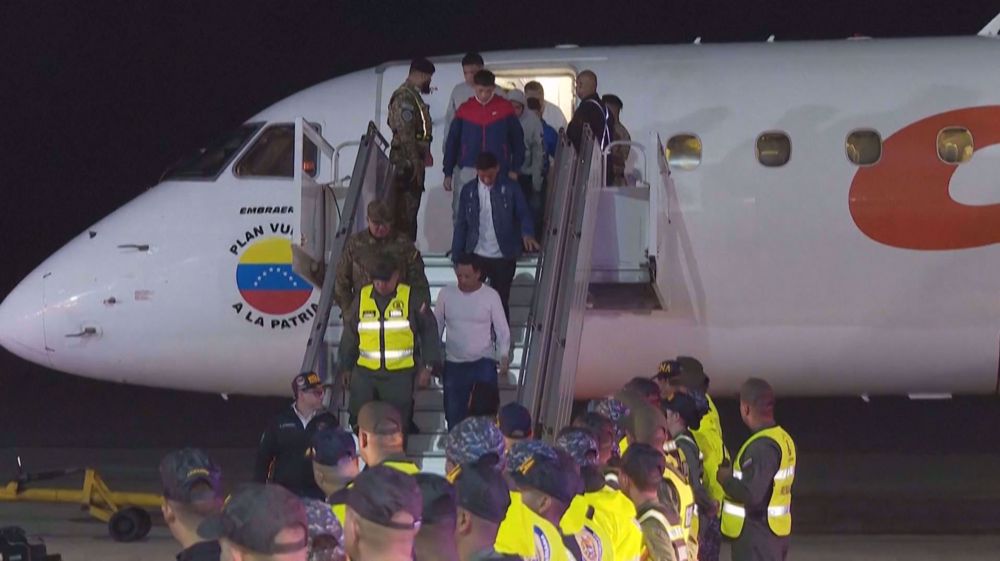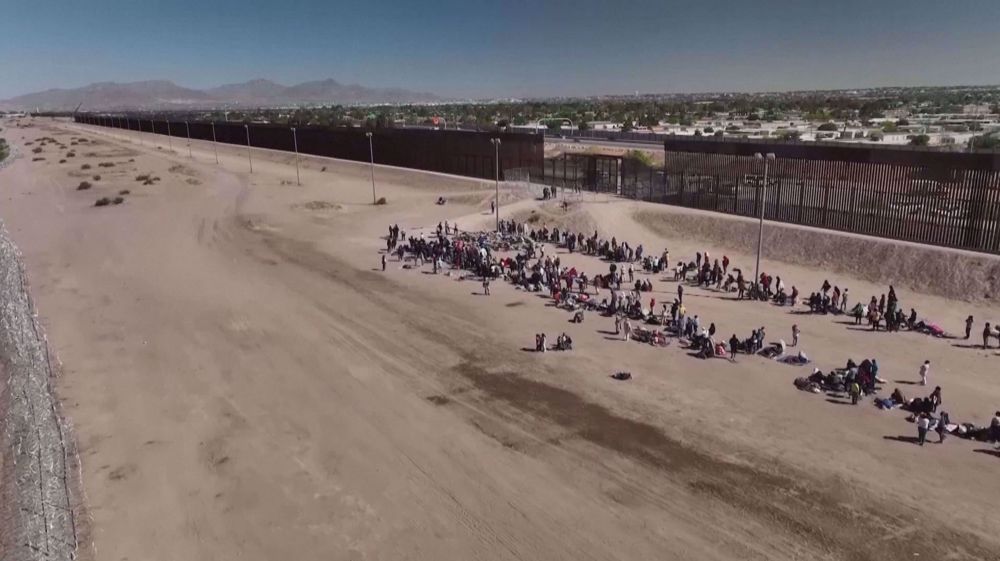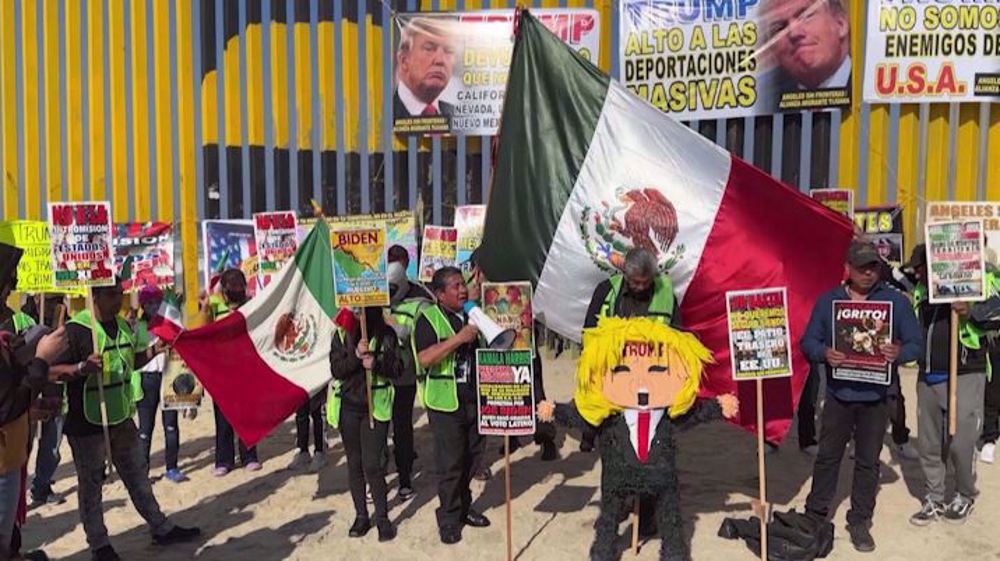Saudi warplanes continue bombing Yemen
Here is a round-up of global news developments:
- Saudi warplanes continue to carry out airstrikes against Yemen. In the latest attacks, fighter jets bombed Sana’a and Amran provinces. Saudi Arabia began its military campaign against Yemen in March 2015. The war has killed more than 9400 Yemenis, including 4,000 women and children.
- Human Rights Watch and Amnesty International slam the UN over its decision to remove Saudi Arabia from the group of states previously blacklisted by the world body for violating children’s rights in Yemen. On Thursday, the UN blamed more than 60 percent of Yemeni child deaths on Saudi Arabia and its allies.
- Leader of Iran’s Islamic Revolution Ayatollah Seyyed Ali Khamenei has called for efforts to develop Quranic concepts and introduce them to the world. Ayatollah Khamenei added that world powers and their weapons as well as the Zionist regime can do nothing if Quaranic concepts are conveyed.
- Iran has denied travel visas for three hawkish US Republicans. The lawmakers requested the visas earlier this year to monitor Iran’s compliance with last year’s nuclear deal. Iran informed the US congressmen that no citizen or official from the P5+1 group is permitted to monitor Tehran's compliance with the nuclear deal.
- Turkish police detain four suspects in connection with a car bomb attack that targeted a police bus in Istanbul. Authorities are interrogating the suspects. Tuesday’s explosion took place in Istanbul central district of Vez-neciler and killed at least eleven people.
- The Kenyan government bans all protests against the country’s electoral body following Monday’s clashes with police which left two demonstrators dead. People have been holding protests nearly every Monday to push for the disbanding of Kenya’s electoral commission, which they accuse of being biased and corrupt.
- British lawmakers in the House of Commons pass a new surveillance bill dubbed the snooper’s charter. If approved by the House of Lords, the legislation will allow intelligence agencies to request online communications data from Internet service providers and mobile phone companies. Rights groups have criticized the measure.
- In Venezuela, clashes have broken out between police and anti-government protesters in the capital Caracas. Police used tear gas to disperse the demonstrators who were trying to reach the headquarters of Venezuela's electoral body. The protesters renewed calls for a recall referendum to overthrow embattled President Nicolas Maduro.

Nearly 200 migrants deported from US, all men, arrive in Venezuela

'Un-American,' 'Help people already here'- birthright citizenship debate divides NY

Activists in Mexico rally against incoming Trump's anti-immigration policies
Iran to spend $800 mln on buying 15 new oil drilling rigs: NIDC
Netanyahu’s ‘revenge’ policy against Gaza children doomed to failure: Hamas
VIDEO | Gaza healthcare system approaching total collapse
Gaza ‘incredible piece of important real estate,’ Trump tells Netanyahu
Israeli forces kill Palestinian-American teenager in West Bank
Deal within reach if US shows genuine will in Oman talks: Araghchi
Russia’s State Duma approves 20-year strategic partnership treaty with Iran
Trump threatens additional 50% tariffs on China as trade war escalates






 This makes it easy to access the Press TV website
This makes it easy to access the Press TV website